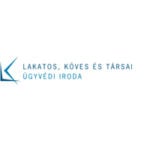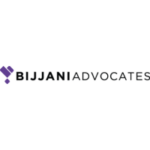-
What are the typical ownership structures for project companies in your jurisdiction? Does this vary based on the industry sector?
The typical legal form of a project company for project finance is a “company limited by shares (股份有限公司)” under Taiwan law and sometimes it may be “limited company (有限公司)”. The project company can be directly or indirectly held by the sponsor.
-
Are there any corporate governance laws or accounting practices that foreign investors in a project company should be aware of?
For foreign investors, it is important to take into consideration the Taiwan Company Act, the Statute for Investment by Foreign Nationals, and associated regulations and interpretations. Here are key points to note:
- Foreign Investment Approvals: Foreign investors must obtain Foreign Investment Approvals from the Department of Investment Review (DIR) under the Ministry of Economic Affairs of Taiwan. The Statute for Investment by Foreign Nationals outlines situations constituting foreign investment, such as:
- Holding shares in a Taiwan company or contributing to its capital.
- Establishing a branch office, proprietary business, or partnership within Taiwan.
- Providing loans to the invested business for a duration exceeding one year.
Prior approval from the DIR is mandatory before implementing any foreign investment. This requirement applies regardless of whether the foreign investor is subscribing to new shares, purchasing existing shares, increasing investments, or providing loans for a duration of at least one year to Taiwanese companies in which they are invested.
2. Restriction on Dividend Payments: According to the Taiwan Company Act, companies are generally prohibited from paying dividends until certain conditions are met:
- Losses have been covered.
- A legal reserve has been set aside.
Surplus earnings remain after meeting the aforementioned requirements.
-
If applicable, what forms of credit support from sponsors or host governments are typically provided?
It depends on the shareholding structure of the project companies and the credit status of the sponsors.
In practice, local Taiwanese banks request the sponsors to provide parent guarantee, support letter (undertakes its continuing support of the project) or undertakings for not selling shares in project company. On the other hand, land or real estate mortgage held by the sponsors are rather uncommon used for credit support from sponsors in respect of project financing.
For projects in Taiwan, it is rare that a host government provides direct credit support (except for export credit support which will be further explained in Q19 below).
-
What types of security interests are available (and suitable) for a project financing in your jurisdiction? Are direct agreements used?
The following assets are typically available as collateral to lenders:
- mortgage over real estate and chattel mortgage/pledge over plant, machinery, and equipment (e.g., turbine, switch board);
- assignment of receivables under material contracts signed by the project company (e.g., project contracts, land lease agreements and insurances);
- pledge over cash deposited in bank accounts; and
- pledge over shares in companies incorporated in Taiwan.
In addition, direct agreements are commonly used in large-scale projects, particularly with EPC contractors, O&M contractors, and key suppliers. However, these arrangements usually require advance planning and negotiation, as contractors may have commercial concerns regarding step-in rights or other lender protections.
-
How are the above security interests perfected?
Regarding each collateral mentioned above, it is necessary for the security agent and the project company to enter into an agreement specifying the assets or rights intended for pledging or mortgaging.
1.No Floating Charge and Pledge of Accounts:
Due to the absence of a “floating charge” concept in Taiwanese law, a general security agreement without the identification of specific assets may not be enforceable. As floating charges are not recognized, the pledge is limited to the cash in the bank account at the time of creation and notification to the account bank. Subsequent cash deposits are not covered unless periodically confirmed by the pledgor, typically every one to three months, to ensure ongoing coverage.
2. Real Estate:
Creating a real estate mortgage in Taiwan does not require the mortgagee’s possession of the real estate. However, registration with the competent authority is necessary to create the mortgage, and this registration plays a crucial role in determining mortgage priority.
3. Chattel:
For a chattel pledge, the mortgagor must surrender possession of machinery and equipment. This requirement does not apply to a chattel mortgage. Nevertheless, registration with the competent authority is required for the mortgagee to assert the chattel mortgage against a bona fide third party. Chattel mortgages, registered as public records, are more common than chattel pledges since possession by the security agent is not mandatory.
4. Agreement Assignment:
Besides executing relevant assignment agreements, Taiwan law mandates the delivery of a notice of assignment. Failure to deliver the notice renders the assignment ineffective until the debtor is notified. While lender requests often include an acknowledgment of assignment from counterparties, it is not a legal requirement for the assignment.
5. Share Pledge:
A Taiwan-incorporated private project company has the option to issue paper share certificates based on its articles of incorporation; however, it is customary in the market for security agent to request the pledging of shares in the form of paper certificates. Article 908 of the Taiwan Civil Code outlines the process for pledge creation depending on whether the shares have named holders or not. While the pledge is valid between the pledgee and pledgor upon endorsement and delivery of share certificates, it is enforceable against the company only after notifying the company of the pledge creation.
6. Direct Agreement
As mentioned above, direct agreements are commonly used in large-scale projects. However, these arrangements require the consent of the relevant contractors and service providers. Therefore, if not planned in advance, it will be difficult to request their execution.
-
Please identify how security is enforced (notably the enforcement options available for secured parties) both pre and post insolvency/bankruptcy of the project company?
The standard enforcement procedures for various types of collateral are outlined below:
1.Real Property:
In cases where compulsory enforcement of real property is required under Taiwanese law, the court will conduct an auction in accordance with the Compulsory Enforcement Act. Taiwan law permits agreements where ownership of the collateral is transferred to the mortgagee upon mortgage expiration if the loan remains unpaid. However, such agreements must be registered to enable claims against third parties. If the collateral’s value exceeds the secured creditors’ rights, any excess must be returned to the mortgagor.
2. Chattel and Other Collateral:
Security over chattels can be classified into two types: pledge and mortgage. Pledges require physical possession, while chattel mortgages, which registration will be required, are common for equipment like general machinery. In the event of default, the pledgee can execute the pledge through various means:
- Transfer of ownership to the pledgee upon non-payment at maturity (if agreed upon).
- Contractual acquisition of ownership or disposal of the collateral (except via auction) after default, unless prejudicial to other pledgees’ interests.
- Sale of the pledged collateral by auction, with prior notice to the pledgor.
For chattel mortgages, the mortgagee can take immediate possession of the movable asset upon default. If the asset may depreciate, the mortgagee can dispose of it immediately. Otherwise, the debtor has ten days to redeem the property, after which the mortgagee can sell it through public auction, either court-ordered or notary public-attested. The sale must be publicly announced with a minimum five-day notice.
It’s crucial to note that a promise to transfer ownership of mortgaged collateral before the end of the liquidation period is invalid under Taiwanese law, unless made after the liquidation period concludes. However, a pledge’s collateral can be transferred under certain circumstances prior to full loan repayment.
Enforcement of a security interest by a pledgee without court proceedings is possible with the security provider’s agreement. If there is no agreement, a court order is required. If enforcement is based on the debtor’s third-party monetary debt claim, the court may issue a seizure order, prohibiting the debtor from collecting or disposing of the debt. The court may seek the creditor’s opinion, authorize debt collection, or transfer the debt to the creditor. Non-compliance may lead to auction or sale enforcement, like chattel pledge provisions.
Lastly, the pledgor and pledgee can agree to sell pledged securities at public auction, or after loan maturity, the pledgor can agree to transfer title or dispose of securities by a method other than public auction, provided it does not harm other security interest holders.
-
What are other important considerations in relation to the security regime in the jurisdiction that secured parties should be aware of?
1.There is no “floating charge” concept under Taiwan law (please see Q5 for details)
2. The lender in practice requires the issuance of paper share certificates for share pledge (please see Q5 for details)
3. Specific registration requirements for agreements regarding transfer of ownership of the collateral upon the expiry of the mortgage (please see Q6 for details)
4. Questionable for a non-creditor/lender’s holding of the collateral as a trustee or a security agent:
In the customary practice of a syndicated loan, member banks forming the syndicate typically designate an agent bank to represent and act on behalf of all syndicate members. This representation includes tasks such as registering the agent bank as a mortgagee and overseeing the foreclosure of mortgaged property. Additionally, the syndicated loan agreement generally includes a provision stipulating that the claims of the syndicate member banks against the borrower are joint and several. Consequently, the agent bank has the authority to seek the entire loan amount from the borrower, enforce the associated security, and allocate the proceeds among all lenders according to their respective claims.
However, under Taiwanese law, there is uncertainty regarding whether a third party, not serving as a creditor or lender, can legitimately hold collateral as a trustee or security agent on behalf of other creditors or lenders. According to the Civil Code of Taiwan, the creation of a mortgage or pledge in favor of the creditor or pledgee may not be valid if the mortgagee or pledgee lacks an underlying credit claim against the debtor.
-
What key project risks should lenders be aware of in project financings in your jurisdiction? This may include, but may not be limited to, the following risks: force majeure, political risk, currency convertibility risk, regulating or permitting risk, construction/completion risk, supply or feed stock risk or legal and regulatory risk).
One of the most important restrictions is the currency convertibility risk. Any exchange of TWD amounts into any other currency more than the equivalent of USD100 million (annual aggregate settlement amount) requires prior written approval from the Central Bank of Taiwan. This FX regulation is triggered only by an exchange of TWD-denominated amounts; it does not apply if the transfer to/by a company is not in TWD and there is no currency exchange from TWD. As an example, where the borrower receives a USD-denominated loan and makes a payment in USD, there is no foreign exchange, and the FX regulations would not be relevant. In practice, the Central Bank of Taiwan is unwilling to issue approvals in the context of loan transactions as its general policy is to promote funding via domestic financial institutions (without a need to exchange currency).
-
Are any governmental / regulatory consents required and are any financing or project documents requirement to be filed with any authority in order to be admissible in evidence in a court of law, valid or enforceable?
No registration is required for the financing or project agreements in order to be admissible in evidence in a court of law, valid or enforceable. However, please note that it is required to quarterly report to the Central Bank of Taiwan of the outstanding amount of foreign debts.
According to Article 5 of the Taiwan Stamp Tax Act, the following are subject to stamp tax:
- receipts for monetary payments;
- deeds for the sale of movables;
- contracting agreements (agreements executed for the completion of a specifically ordered task); and
- contracts for the sale, transfer and partition of real estate.
If none of the above types of documents will be issued, then stamp tax is not required.
Generally, borrowers will not issue receipts to lenders, and will not request lenders to issue receipts. Furthermore, the levy of stamp tax only occurs when receipts are issued within the territory of Taiwan: if the lender issues a receipt outside of Taiwan, such issuance will not be subject to stamp tax.
-
Are there are any specific foreign exchange, royalties, export restrictions, subsidies, foreign investment, that are relevant for project financings (particularly in the natural resources sectors)?
Regarding foreign investment approvals, beyond the overview provided in Q2, there are specific details to note:
1.Negative List and Positive List:
There exists a Negative List enumerating industries where foreign investment is either prohibited or subject to certain restrictions, encompassing sectors like fishery, transport, postal services, and broadcasting. For investors from the People’s Republic of China (PRC), only industries included in the Positive List, as officially announced by the government, are accessible for PRC investments.
2. Land Ownership Restrictions:
Foreign entities are restricted from owning forest land, land with mineral deposits, water sources, or other lands with comparable resources. However, subject to certain conditions, a foreign entity with a branch in Taiwan can acquire land in Taiwan if its home country reciprocates the same rights to Taiwanese nationals and entities.
For the extraction of natural resources, adherence to the provisions of the Mining Act is mandatory, and obtaining a license is a prerequisite. Similarly, the operation of pipelines (for water, electricity, gas, etc.) necessitates compliance with relevant laws and regulations governing public utilities, requiring the acquisition of an appropriate license.
For foreign exchange control, please see Q8.
-
Please set out any specific environmental, social and governance issues that are relevant. For example, are project companies subject to certain ESG laws, reporting requirements or regulations?
Starting from 2025, all listed companies are required to disclose ESG information. According to the rules, disclosure should be made following requirements set out by the Global Reporting Initiatives (GRI). In the report, the company shall disclose its identified material economic, environmental, and social topics, management approach, topic-specific disclosure, and its reporting requirements, which shall, at a minimum, meet the core option of the GRI Standards.
The sustainability report should include relevant environmental, social, and corporate governance risk assessments and lay out the performance indicators to manage the material topics identified.
In the sustainability report, a listed company shall disclose what Content Index of the GRI Standards corresponds to the contents of the report and specify in the report whether the topic-specific disclosures have been assured or verified by a third party.
According to the TWSE’s website, the key indices to be disclosed includes: gas emission, energy management, water resource and wastes.
In addition, there is also information report requirements in respect of the electricity enterprises under the Electricity Business Act. To ensure open access of information, Electricity Enterprise should:
- monthly reports on the operation, supply and demand of the electric energy and the company’s financial status; and
- annual report within three months as one business year ends.
-
Has any public-private partnership models or laws been enacted in the jurisdiction, and if so, are they specific to certain industry sectors?
The rise in popularity of public-private partnerships (PPPs) in Taiwan, such as notable projects including the Taiwan High-Speed Rail and the Electronic Toll Collection System for highways, led to the enactment of the Act for Promotion of Private Participation in Infrastructure Projects (the “PPP Act”) in 2000. The legislation, overseen by the Ministry of Finance, has undergone the most recent amendment in 2022. It encompasses a broad spectrum of infrastructure, including sanitation, medical facilities, common conduits, environmental pollution prevention, and water supply.
The PPP Act not only establishes transparent and equitable bidding procedures but also provides various incentives to encourage private sector participation. These incentives may include favorable rental terms and tax exemptions, creating a framework that fosters collaboration between public and private entities in infrastructure development.
-
Will foreign judgments, arbitration awards and contractual agreements to arbitrate be upheld?
Taiwan laws have established processes for the recognition of foreign judgments or arbitral awards.
To be recognised in Taiwan, a foreign judgment must not:
- be rendered by a foreign court that lacks jurisdiction under Taiwan law;
- be a default judgment rendered against the losing defendant (unless otherwise permitted by applicable laws);
- violate the public order and morals of Taiwan; and
- be rendered by a foreign country that does not afford mutual recognition to Taiwan.
For a foreign arbitral award to be recognised in Taiwan, such arbitration must not violate the public order and morals of Taiwan, and the matter at dispute must be arbitrable under Taiwan law.
Any foreign judgments or arbitral awards that violate these provisions will not be recognised in Taiwan. Under Taiwan law, parties may generally agree to submit their disputes to a foreign court or an arbitral tribunal located outside of Taiwan.
If the matter does not fall under the following circumstances, the court does not usually rule out such decision:
- it would be unfair for the subject matter to be adjudicated by the chosen jurisdiction;
- the consent of a party to submit to the chosen jurisdiction is obtained by fraud, duress or other unlawful means;
- the parties are not on an equal footing when they enter into the submission-to-jurisdiction agreement;
- it would be inappropriate or inconvenient for the chosen jurisdiction to adjudicate the subject matter; and
- the country of the chosen jurisdiction does not recognise and enforce judgments of the Taiwanese courts on a reciprocal basis.
Taiwanese courts recognise arbitration agreements requiring the submission of disputes to arbitration institutions or ad hoc arbitration outside of Taiwan. The arbitral awards rendered under such arbitration agreements are generally recognised and enforceable, unless any of the grounds for denial of recognition or enforcement prescribed under the Arbitration Act applies.
-
Is submission to a foreign jurisdiction and waiver of immunity effective and enforceable?
In accordance with the rules on conflicts of laws in Taiwan, although a contract may select the law of another country as the governing law, there are some exceptions where Taiwan law will govern regardless of the parties’ selection,
as follows:
- if the parties select the law of another country to evade compulsory or prohibiting Taiwanese regulations, then such compulsory or prohibiting regulations will nevertheless be applied; and
- when the law of a foreign state is applicable based on Taiwan’s rules regarding conflicts of laws but the result of such application leads to a violation of the public order or morals of Taiwan, such foreign law will not be applied.
There is no general legal framework involving sovereign immunity and waiver in Taiwan.
-
Please identify what you consider to be (a) the key current issues for project financing in your jurisdiction; and (b) any emerging trends or topics which should be considered or focused on by project financing stakeholders in this jurisdiction.
a. the key current issues for project financing in Taiwan include:
- change of law, including the laws and regulations which are the most relevant to renewable energy such as the Electricity Business Act and the Renewable Energy Development Act;
- the lack of floating charge concept and the restrictions of foreign lender’s obtaining of rights of mortgages;
- currency exchange control as mentioned in Q8; and
- the transition from power purchase agreement with Taipower to corporate power purchase agreements which has impact on the lenders’ assessment of financing in the projects.
b. the two major emerging trends or topics which should be considered or focused on by project financing stakeholders are as follows:
1.The growth of the corporate power purchase agreement (CPPA)
Following the amendment of the Electricity Business Act in 2017, it is now allowable to sell renewable energy directly to a corporate offtaker. Policies such as the finalised Plan for Zonal Development Auction now set the bidding price cap at TWD 2.49/kWh and the lower price cap at TWD 0/kWh, which has encouraged developers to secure project finance and future price negotiations with potential CPPA offtakers. Therefore, most of the offshore wind farm developers are extensively negotiating the potential offtakers for securing CPPAs. There are also some developments in respect of the project financing, including the credit rating of the potential CPPA offtakers.
Due to the difference between the national offtaker (Taipower) and a corporate offtaker, there are some issues to be considered when entering a CPPA. For example, if any corporate offtaker is insolvent, there is usually a material breach of the CPPA by the relevant corporate offtaker, and subsequently a potential event of default will occur under the finance documents, subject to certain remedies and cure periods.
In the termination of a CPPA, the relevant project company will be required to enter a Taipower Backup PPA and/or replacement CPPA on certain terms and with a counterparty that is reasonably acceptable to the finance parties within a period of such termination. Failure to remedy within the applicable cure period will result in an event of default under the finance documents.
2. The newly introduced national guarantee system
Foreign developers and foreign suppliers/contractors are involved in the construction of offshore wind projects, so guarantees from export credit agencies (ECAs) from each respective country (e.g., the Danish Export Credit Agency, UK Export Finance, Atradius, K-sure and Nippon Export and Investment Insurance) are an important factor for the successful development of the offshore wind power industry in European countries and are now gaining support in Taiwan.
Most ECAs are supported by the state. With reference to the international financing guarantee model, the Taiwanese government has also been progressing with establishing a national financing guarantee mechanism since September 2020, under which the government will fund TWD 6 billion, with banks providing a further TWD 4 billion, to contribute to a green energy industry.
-
Please identify in your jurisdiction what key legislation, subsidy regimes or regulations have been implemented (or will / plan to be) for projects in connection with the energy transition and/or specific projects due to energy security?
One of the most important legislations for projects in connection with the energy transition is the amendment of the Electricity Business Act in 2017, it is now allowable to sell renewable energy directly to a corporate offtaker, please see Q15 for details.
The other key legislation of Renewable Energy Development Act promulgated in 2009 which establishes the basic legal framework of renewable power and includes certain incentives of the development of renewable projects such as feed-in-tariff and guarantee of the use of the lands owned by the government.
Another recent legislation which relates to energy transition is the newly adopted “Climate Change Response Act” adopted on January 10, 2023. This is updated from the original Greenhouse Gases Reduction and Management Act. The main update of the Climate Change Response Act is the shifting from greenhouse gas emission itself to an overall concern about the client change.
-
Please identify if there are any material tax considerations which need to be taken into account for a project financing in your jurisdiction, and if so, how such tax issues can be mitigated.
Below is a non-exhaustive list of material tax considerations which need to be considered for a project financing in Taiwan:
For stamp tax, please see Q9.
If the dividends are paid to a foreign parent company, it will be subject to withholding tax. Any remittance and repatriation of funds to a party in another jurisdiction will be subject to foreign exchange control in Taiwan, as mentioned in Q8.
For foreign lenders, referring to non-Taiwan residents or profit-seeking enterprises lacking a fixed place of business in Taiwan, the withholding tax rate for interest imposed on a corporate borrower is 20%, while the withholding tax rate on earned interest is 15%. However, many tax treaties stipulate a reduced income tax withholding rate of 10%.
Taiwan presently has tax treaties established with 35 jurisdictions, providing an opportunity for specific foreign lenders to benefit from a lower income tax withholding rate based on the existing treaties between Taiwan and their country of incorporation. In cases where the interest is disbursed to a foreign company, the borrower situated in Taiwan assumes the responsibility for withholding such taxes.
Under the Income Tax Act, interest income categorized as Taiwan-sourced income is generally subject to Taiwan income tax. Typically, the interest payments made by a local borrower to a foreign lender are deemed Taiwan-sourced income.
-
What types of funding structures (e.g. debt, equity or alternative financing) are typical for project financing in your jurisdiction. For example, are project bond issuances, Islamic finance and – in the context of mining deals – streams or royalties, seen as attractive (and common) options for stakeholders? Are you seeing private credit in project financing in your jurisdiction or other alternative financiers? If so, what types of projects are they looking to finance and what are the key structuring issues of such financings?
To reduce foreign exchange issues, there will be TWD denominated facilities and foreign currency denominated facilities.
In addition, there are often equity contribution requirements, which may be in the form of shareholder loans or subscriptions for shares in the project companies. To secure the rights of the lenders, shareholder loans are usually in the form of unsecured subordinated loans (and the lenders of such shareholder loans should execute certain subordination undertakings).
For syndicated loan projects (which are also common in Taiwan), the obligation of the borrower is usually joint and several. There will be one or several facility agent(s) to manage such syndicated loan, and intercreditor clauses (or a separate intercreditor agreement) to set out the rights and obligations among multiple lenders as described in Q7.
For projects with more than one project company, the lenders sometimes request each project company to be co-borrowers and to be jointly and severally liable by way of guarantee for the other project company’s obligations under the finance documents. In addition to the syndicated loans, the project companies may enter into a two-way intercompany loan agreement between themselves to allow for intercompany transfers when necessary.
In addition, private credit is currently predominantly utilized in industries such as startups and small- to medium-sized enterprises, which face challenges in securing bank financing. However, its application in project financing in Taiwan remains limited.
-
Please explain if there are any regional development banks or export credit agencies, and if so, what is their role in project financing in your jurisdiction and beyond.
For the introduction of the newly introduced national guarantee system, please see Q15.
Under the regulations of the national guarantee system, the guarantees are under the following aspects:
Green Energy Project Construction:
For the financing of the local enterprises of their engagement in local green energy project construction/development or enterprises directly contracting with local EPC turnkey enterprises and the purchase of locally produced components, equipment, systems, maritime projects, integration, and other services required. A single enterprise can be guaranteed with a maximum financing limit of NTD 30 billion with a guaranteed ratio of up to 80%, and a maximum period of 20 years.
Green Energy Equipment and Services:
(1) Providing financing for local green energy construction-related components, equipment, systems, maritime projects, integration, and other services. A single enterprise guarantees a maximum financing limit of 3 billion NT dollars (not exceeding 70% of the order or contract amount), a guaranteed ratio of up to 80%, and a maximum period of 10 years.
(2) Providing financing for the export of overseas green energy construction-related components, equipment, systems, maritime projects, integration, and other services. A single enterprise guarantees a maximum financing limit of 500 million NT dollars (not exceeding 70% of the order or contract amount), a guaranteed ratio of up to 80%, and a maximum period of 10 years.
Energy Storage: Used to finance the purchase, manufacturing, and supply of energy storage components, equipment, systems, integration, and other services. A single enterprise guarantees a maximum financing limit of 2 billion NT dollars, a guaranteed ratio of up to 80%, and a maximum period of 10 years. If there is financing required for the export of overseas energy storage components, equipment, systems, integration, and other services, a single enterprise guarantees a maximum financing limit of 500 million NT dollars, a guaranteed ratio of up to 80%, and a maximum period of 10 years.
Electricity Purchase: Provides compensation for electricity purchase costs in case of payment inability for power purchase companies. A single enterprise guarantees a maximum financing limit of 8 billion NT dollars, a guaranteed ratio of up to 80%, and a maximum period of 20 years.
Major Public Construction: Used for major public construction or forward-looking infrastructure projects, including land acquisition, construction projects, machinery, or equipment expenses. A single enterprise guarantees a maximum financing limit of 1 billion NT dollars (not exceeding 70% of the order or contract amount), a guaranteed ratio of up to 80%, and a maximum period of 10 years.
-
Please explain if there are any important insurance law principles or considerations in connection with any project financing in your jurisdiction.
Foreign insurance companies may not sell insurance policies in Taiwan unless they obtain a licence to do so from the Financial Supervisory Commission (FSC). In addition, insurance companies must submit the terms and conditions of their insurance policies to the FSC for approval before selling them in the market. Once licensed and approved, they will not be subject to any special restrictions or controls on their sale of insurance policies over project assets. If the insurance premium on the project assets is paid by a Taiwanese company or the Taiwan branches of a foreign company, such Taiwanese entity may have to bear the tax withholding obligation.
Also, a foreign company may be named as a payee or receiver of an insurance payment by way of transferring the right of the insurance policy in Taiwan.
-
Please explain if there are any issues with entering into any hedging arrangements in this jurisdiction.
Under Taiwanese law, entering into hedging arrangements is generally permitted. Nevertheless, it is advisable to conduct a further review of the foreign exchange control issues referenced in Q8 and to consult with a Taiwan CPA regarding the relevant tax and accounting implications.
Taiwan: Project Finance
This country-specific Q&A provides an overview of Project Finance laws and regulations applicable in Taiwan.
-
What are the typical ownership structures for project companies in your jurisdiction? Does this vary based on the industry sector?
-
Are there any corporate governance laws or accounting practices that foreign investors in a project company should be aware of?
-
If applicable, what forms of credit support from sponsors or host governments are typically provided?
-
What types of security interests are available (and suitable) for a project financing in your jurisdiction? Are direct agreements used?
-
How are the above security interests perfected?
-
Please identify how security is enforced (notably the enforcement options available for secured parties) both pre and post insolvency/bankruptcy of the project company?
-
What are other important considerations in relation to the security regime in the jurisdiction that secured parties should be aware of?
-
What key project risks should lenders be aware of in project financings in your jurisdiction? This may include, but may not be limited to, the following risks: force majeure, political risk, currency convertibility risk, regulating or permitting risk, construction/completion risk, supply or feed stock risk or legal and regulatory risk).
-
Are any governmental / regulatory consents required and are any financing or project documents requirement to be filed with any authority in order to be admissible in evidence in a court of law, valid or enforceable?
-
Are there are any specific foreign exchange, royalties, export restrictions, subsidies, foreign investment, that are relevant for project financings (particularly in the natural resources sectors)?
-
Please set out any specific environmental, social and governance issues that are relevant. For example, are project companies subject to certain ESG laws, reporting requirements or regulations?
-
Has any public-private partnership models or laws been enacted in the jurisdiction, and if so, are they specific to certain industry sectors?
-
Will foreign judgments, arbitration awards and contractual agreements to arbitrate be upheld?
-
Is submission to a foreign jurisdiction and waiver of immunity effective and enforceable?
-
Please identify what you consider to be (a) the key current issues for project financing in your jurisdiction; and (b) any emerging trends or topics which should be considered or focused on by project financing stakeholders in this jurisdiction.
-
Please identify in your jurisdiction what key legislation, subsidy regimes or regulations have been implemented (or will / plan to be) for projects in connection with the energy transition and/or specific projects due to energy security?
-
Please identify if there are any material tax considerations which need to be taken into account for a project financing in your jurisdiction, and if so, how such tax issues can be mitigated.
-
What types of funding structures (e.g. debt, equity or alternative financing) are typical for project financing in your jurisdiction. For example, are project bond issuances, Islamic finance and – in the context of mining deals – streams or royalties, seen as attractive (and common) options for stakeholders? Are you seeing private credit in project financing in your jurisdiction or other alternative financiers? If so, what types of projects are they looking to finance and what are the key structuring issues of such financings?
-
Please explain if there are any regional development banks or export credit agencies, and if so, what is their role in project financing in your jurisdiction and beyond.
-
Please explain if there are any important insurance law principles or considerations in connection with any project financing in your jurisdiction.
-
Please explain if there are any issues with entering into any hedging arrangements in this jurisdiction.














